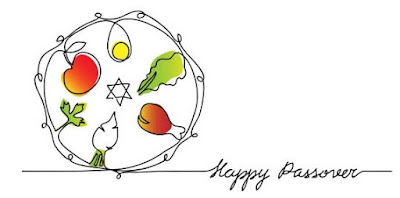Passover... also known as Pesach... is a major Jewish holiday that is
celebrated on the 15th day of the Hebrew month Nisan. It is celebrated to
commemorate the Exodus of the Israelites out of Egypt. What is an Exodus?
How does the food eaten during Passover (Pesach) symbolize its significance to
the Jewish people? Keep reading to learn more!
Disclosure: Affiliate links to Amazon are included in this post.
Passover (Pesach) celebrates the Exodus of the Israelites... the ancient
ancestors of the modern-day Jewish people... from Egypt over 3,000 years ago.
3,000 years ago, the Israelites were enslaved to the Pharoah of Egypt. They
were forced into hard labor to construct city buildings, farm the fields,
serve as household servants, and even build the pyramids. Many of the
Israelites lived under punitive conditions. These conditions were intolerable
and the Israelites sought their freedom.
The word Exodus refers to the mass departure of the Israelites from
Egypt.
Let My People Go by Louis Armstrong
The Exodus of the Israelites out of Egypt was led by a man named Moses. The
story of how Moses parted the Red Sea to allow the Israelites to cross to
safety is well known by people of many religions.
Song of Moses: Exodus 15 by Parable of the Vineyard
The ritual observance of Passover (Pesach) centers around a special service
conducted at home called the Seder... meaning order... which includes a
festive meal. Each food served during the Seder symbolizes an important part
of the Exodus story. There are many foods that can be served during the Seder,
but these are the most symbolic:
- Karpas. Parsley or celery is served with a bowl of salt water, symbolizing the tears of the Israelites.
- Maror. Horseradish is served to symbolize the bitterness of slavery.
- Hazeret. In addition to the horseradish, many families will add bitter herbs to their seder plates.
- Charoset. Charoset is a mixture of apples or dried fruit, nuts, wine, cinnamon, and other spices. It symbolizes the mortar the Jewish people used to construct the buildings for Pharoah.
- Beitzah. A roasted or hard-boiled egg is served to symbolize life and the perpetuation of existence.
- Zeroah. Zeroah is a bone... usually from a lamb's shank... that symbolizes the Paschal sacrificial offering and the outstretched arm of God.
- Matzah... sometimes called the bread of affliction... symbolizes the hardship of slavery and the Jewish people's hasty escape to freedom.
The Passover Seder Symbols Song by Runsing
Dayenu: Passover Song with Lyrics by hskubes
This has been a very simple and superficial explanation of
what Passover (Pesach) is. There is sooooooooooo much more to Passover than
the food on the Seder plate. Visit Judaism 101 to learn more about Passover, its history, other traditions, rituals,
symbolism, recipes, music, prayers, and more!
Dayenu: A Passover Song by Jewish Music Toronto

Did you enjoy learning about Passover and listening to these songs? If so,
check out these other blog posts about other Jewish holidays and topics:
- Recipes: Rosh Hashanah Recipes
- Book + Recipe: The Better-Than-Best Purim by Naomi Howland
- Book List: 10 Children's Books About Rosh Hashanah
- Book + Craft: Sammy Spider's First Rosh Hashanah by Sylvia Rouss
- Book + FREE Printable: When the Chickens Went on Strike: A Rosh Hashanah Tale by Erica Silverman
- Book List: 10 Children's Books About Hanukkah
search words: Passover, Pesach, Seder, Jewish holidays, Jewish food,
Jewish music, Jewish people, Jews, Israel, Israelites

